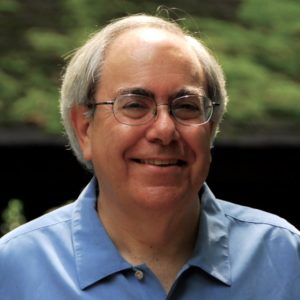By Sheldon Friedman, reviewing Democracy in Chains:
Nancy MacLean’s powerful book, Democracy in Chains, focuses on the decades-long alliance between billionaire industrialist Charles Koch and radical right-wing economist James Buchanan—set largely against the backdrop of George Mason University.
Fueled by the limitless donations of the Koch family and the star power of Nobel Prize-winning Buchanan, GMU by the early 1980s was propelling from obscurity to intellectual, policy and activist hub of the libertarian radical right. Along the way, Mason became a key Republican training ground for Capitol Hill staffers, researchers at think tanks such as Cato Institute and Heritage Foundation, administration officials and aspiring politicians.
[Editor’s Note: GMU President Angel Cabrera admitted in April that some GMU donor agreements with the Koch family “fall short of the standards of academic independence”. Meanwhile, a student-led group, Transparent GMU, seeks to open undisclosed GMU donor agreement files through a pending lawsuit in Fairfax County Circuit Court. In addition, a grassroots organization, UnKoch My Campus, has been established to fight excessive donor influence at GMU and other universities.]
MaLean’s book tells the “utterly chilling story of the ideological origins of the single most powerful threat to democracy today, the attempt by the billionaire-backed right to undo democratic governance.”
Buchanan’s ideas turned populism upside down. Traditional populism sees corporations and the wealthy as oppressors of the working class. In Buchanan’s view, it is non-productive “takers” who take advantage of their majority status to use democracy to oppress society’s “makers.”
Buchanan’s enemy was social movements that, in his narrative, use government to coerce the wealthy to pay taxes for programs they do not want. For Buchanan, this is an immoral infringement on liberty. His solution? The ability of majorities to use democracy to impose their will on the wealthy must be shackled. Failure to restrain democracy threatens the survival of capitalism.
MacLean stumbled onto Buchanan while researching Virginia’s reaction to the Brown vs. Board of Education Supreme Court school desegregation decision. By the mid-1950s, Buchanan was a professor at the University of Virginia and a passionate advocate of radical privatization of public education. He saw privatization as the way to undermine the Brown decision.
A key Buchanan insight, MacLean explains, is the importance of stealth, because so many libertarian ideas are unpopular. Buchanan applied this insight as architect of the radical right’s attack on Social Security after direct attacks failed. Buchanan’s approach was to undermine public confidence in the program, then promote “reforms” designed to kill Social Security by disguising them as a way to “save” it. Buchanan’s stealth reframing cemented his collaboration with Charles Koch, for whom abolishing Social Security had long been a cherished goal.
It is remarkable and terrifying that the radical right has made so much progress over the last 50 years. Libertarians utterly reject a great deal of conservatism, yet they have managed to pull in much of the conservative base. They are generally not religious (Buchanan, for example, was an atheist), yet they have pulled in the religious right. Their radical, revolutionary ideology has taken over much of the Republican Party. Their dystopian vision has become a blueprint for terribly harmful public policies.
For her efforts, MacLean has ignited a firestorm of attacks, including calls on Duke University–where she is tenured–to fire her and pressure on her publisher to withdraw the book. Nancy MacLean has struck a nerve on the radical right.

Sheldon Friedman is a recently-retired labor economist who lives in Springfield. He spent much of his career with the AFL-CIO Economic Research Dept. He serves on the national board of the Well Spouse Assn. and chairs its Social Action Committee

Thank you for this extremely helpful information. My daughter graduated about two years ago from GMU with a Comm Degree. We are all liberal and had no idea this kind of self-serving influence was a part of GMU funding. I urge Dr Cabrera to fight this harmful influence. What can we as a family do to support the University in it’s fight against this disturbing situation?
You may wish to contact the advocacy group UnKoch my Campus. We have not dealt directly with them but we understand they are led by a former GMU student and are working to unravel the undue influence on academic freedom of radical right-wing funders like the Koch family. Good luck and let us know —
newsletter@fairfaxdemocrats.org — how it goes! — The Blue View